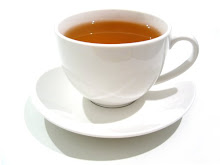When reading the chapter on the making of the film All About Eve in the wonderful Vanity Fair book, Tales of Hollywood, I remembered that someone had given me the DVD a couple of Christmases ago. I dug it out and watched it, worrying that my knowledge of the plot and behind the scenes rivalries and shooting methods would spoil the experience a little.
I was also wary as, quite often, when watching older films that have been praised and lauded over the years, I have been distinctly underwhelmed. This is usually because the ground-breaking technical aspects of these gilded movies have been copied so many times over the years that they no longer seem so special to modern movie audiences. I needn't have worried on either account.
The quality of All About Eve, however, is in the script and acting, both of which are often sadly lacking in many high-profile films today. Based on a short story by Mary Orr, which was in its turn based on the real-life experience of one of Orr's acquaintances, the film follows the fortunes of Eve Harrington,(Anne Baxter) a shy backstage Jenny who reveres Bette Davis' Broadway actress Margo Channing. Eve is befriended by Margo and kind Karen Richards (Celeste Holm) who is the wife of a playwright and the film follows the gradual revelation of the true, manipulative and madly ambitious nature of this supposedly timid fan
This film held the record for the most academy award nominations for a single film until Titanic's 1998 Oscar sweep. These nominations included four for the actresses involved. Davis and Baxter were in the running for best actress and Holm and the wonderful Thelma Ritter were both nominated for best supporting actress (none of them won.) You can appreciate the quality of the acting even more when you know that Davis and Holm loathed each other off set. They play best friends and manage to convey an easy and fond familiarity despite the seething tensions off-camera.
The stand-out performance must be Baxter's Eve, however. Her first scenes show a quiet, dowdy young woman who is simply happy to be in the company of talented people. Eve's character slowly and almost imperceptibly reveals darker depths as the film goes on, slowly wresting control of Margo's life from her faithful assistant Birdie (Ritter), showing more and more interest in the plays that are being offered to her mentor, putting herself forward as an understudy and grimly clawing her way to the place where she wants to be: in Margo's shoes.
Image: Hulton Archive
The pivotal scene is a Ladies Room conversation between Karen and Eve. It begins with both women suspicious and tense, relaxes into a kind, comforting meeting between old friends and then ignites as Eve finally shows her true colours. Eve's hitherto warm, throaty and measured tones become harsh, hard and nasal as she spits out the line "I'd do much more for a part that good!" Even though I knew the plot, I was still shocked at the absolute and yet believably portrayed change in Eve's personality.
Eve's use of the tabloid press to promote herself and denigrate her rivals means that this film still feels relevant and the lovely direction pleased my eyes greatly. Favourite images were Margo's lover Bill walking down a snow-covered country road in silhouette, brightly lit taxis streaming along Broadway at night-time and Eve-obsessed fan Phoebe trying on her idol's glittering cloak in front of a three-way mirror which reflects her satisfied expression back to her a hundred times.





Actually, it wasn't Bill strolling down a country road in silhouette. It was Lloyd Richards, Karen's husband. ;)
ReplyDeleteAaaargghhh!!
ReplyDelete